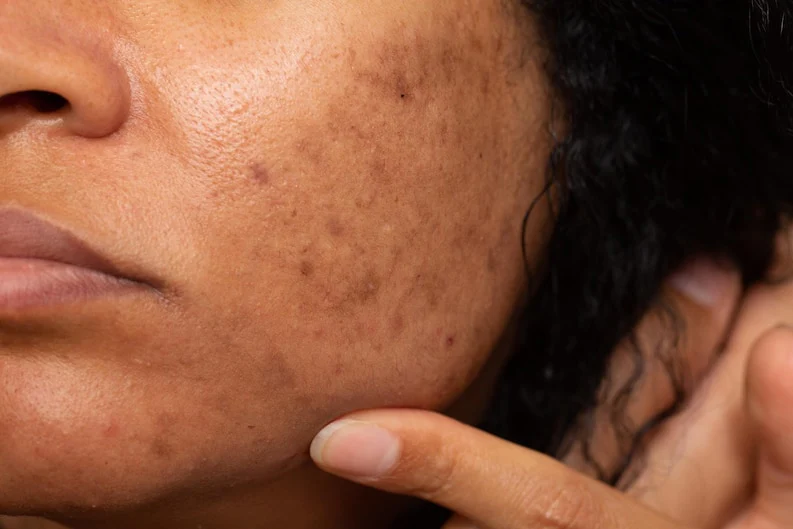Lavender Oil Benefits
Want to know about Lavender oil benefits? Lavender essential oil is renowned for being one of the most popular and versatile oils utilized in aromatherapy.
Extracted from the Lavandula angustifolia plant, this essential oil is well-known for its calming properties and has garnered clinical research that supports its effectiveness in alleviating stress, anxiety, and depression.
A systematic review and meta-analysis highlighted its positive effects on these mental health conditions, demonstrating its potential role as a natural therapeutic agent.
Beyond its soothing effects, lavender essential oil is celebrated for its multifaceted benefits. It is believed to possess a range of properties, including anti-inflammatory, antifungal, antidepressant, antiseptic, antibacterial, and antimicrobial effects.
Additionally, it is known for its antispasmodic, analgesic, detoxifying, hypotensive, and sedative qualities. This diverse array of benefits positions lavender oil as a valuable addition to your mental health toolkit, although it should not be viewed as the sole solution for care.
At a Glance
Lavender oil can help promote relaxation and reduce feelings of depression, anxiety, and stress. If you’re considering incorporating lavender essential oil into your wellness routine, it’s important to begin by educating yourself about its potential benefits and safe usage.
The oil can be employed in aromatherapy through diffusion or inhalation, but it can also be applied topically. For topical use, it’s advisable to dilute lavender oil with a carrier oil, such as coconut or jojoba oil, to enhance safety and effectiveness.
By understanding how to use lavender essential oil properly, you can harness its calming and therapeutic properties to support your overall well-being.
Potential Benefits of Lavender Oil
Lavender essential oil has been the subject of extensive research, highlighting its various properties and potential benefits. Here’s an overview of what the studies have uncovered:
Anxiety Relief
Although there is currently a limited number of large-scale clinical trials specifically examining lavender’s effects on individuals with anxiety disorders, numerous studies suggest that lavender oil may provide significant anti-anxiety benefits.
- Reduction of Dental Anxiety Research has shown that lavender oil can be effective in reducing anxiety in specific contexts. For instance, a study published in Physiology & Behavior in 2005 investigated the effects of lavender aroma on 200 individuals waiting for dental treatment. The results indicated that inhaling the scent of lavender not only diminished feelings of anxiety but also positively influenced the participants’ moods, showcasing its potential as a natural anxiety-relief tool in high-stress environments.
- Decreased Postpartum Anxiety Another noteworthy study published in Complementary Therapies in Clinical Practice in 2012 explored the impact of lavender oil aromatherapy on postpartum anxiety in high-risk women.
In this pilot study involving 28 women who had given birth within the last 18 months, researchers found that participating in aromatherapy sessions—lasting 15 minutes and conducted twice a week for four weeks—significantly alleviated symptoms of anxiety and depression.
This suggests that lavender oil could be a beneficial intervention for new mothers experiencing heightened anxiety levels.
- Lavender Supplements for Anxiety Management There is also emerging evidence to suggest that ingesting lavender oil may contribute to anxiety relief. A report published in Phytomedicine in 2012 reviewed 15 previously published clinical trials and concluded that dietary supplements containing lavender oil could have therapeutic effects for individuals dealing with anxiety and stress. This opens up possibilities for using lavender in various forms to support mental health.
Overall, while further research is needed to fully understand the extent of lavender oil’s effects on anxiety, existing studies indicate that it may serve as a valuable tool for promoting relaxation and reducing anxiety in different populations.
Insomnia and Lavender Oil
Numerous studies have indicated that lavender essential oil may be effective in promoting sleep and combating insomnia.
- Improved Sleep Quality for College Students A study published in the Journal of Complementary and Alternative Medicine in 2015 examined the effects of a combination of sleep hygiene techniques and lavender essential oil therapy on college students. The study involved 79 students who reported experiencing sleep difficulties.
The findings revealed that incorporating lavender essential oil therapy alongside good sleep practices resulted in significantly better sleep quality compared to relying on sleep hygiene alone. Additionally, participants who inhaled lavender at bedtime reported increased daytime energy and overall vitality.
- Benefits for the Elderly Another notable study, published in Holistic Nursing Practice in 2018, explored the effects of lavender aromatherapy on sleep in a nursing home setting.
This study included 30 residents and found that lavender aromatherapy not only facilitated quicker sleep onset but also improved the overall quality and duration of sleep among elderly participants. These results highlight lavender’s potential as a supportive intervention for enhancing sleep in older adults.
Depression and Lavender Oil
Research also suggests that lavender oil may play a role in improving mood and alleviating symptoms of depression.
- Aromatherapy for Depression A systematic review conducted in 2020 found that lavender aromatherapy could be an effective and cost-efficient method for alleviating symptoms of mild to moderate depression. The review emphasized that incorporating lavender into therapeutic practices may provide individuals with a simple approach to enhance their mood.
- Positive Effects on Mental Health Additionally, a 2021 systematic review and meta-analysis reinforced the positive effects of lavender aromatherapy on both depression and anxiety. While the findings indicate a beneficial relationship between lavender oil and mental health, further research is needed to deepen our understanding of its specific effects on depression symptoms.
Overall, the evidence suggests that lavender essential oil could be a valuable addition to holistic approaches for managing insomnia and depression, although more studies are necessary to fully establish its efficacy and mechanisms of action.
Lavender Oil Dosage and Preparation
There is no established recommended daily allowance for lavender essential oil. However, according to aromatherapy principles, inhaling the aroma of lavender essential oil or applying it topically can send signals to the limbic system, a brain region that plays a crucial role in influencing the nervous system and regulating emotions.
A popular method of using lavender oil involves blending it with a carrier oil, such as jojoba or sweet almond oil. This combination not only dilutes the potency of the essential oil, making it safer for topical application, but also allows for a soothing massage.
Once mixed, lavender essential oil can be massaged directly into the skin or added to bath water for a calming experience.
Other Potential Benefits of Lavender Oil
In addition to its mental health advantages, lavender essential oil is believed by some to offer various other health and wellness benefits:
- Lavender Oil for Allergies Many proponents of essential oils suggest that lavender essential oil, particularly when combined with lemon and peppermint oil, can help alleviate allergy symptoms. Lavender is often touted as a natural antihistamine.
A study published in 1999 in the Journal of Pharmacy and Pharmaceutical Sciences indicated that lavender oil could inhibit immediate-type allergic reactions in mice and rats. While this finding is promising, more research is needed to determine its effectiveness in humans.
- Lavender Oil for Eyelashes Some claim that adding lavender oil to mascara can promote faster and thicker eyelash growth. The rationale behind this belief is that tiny mites inhabit eyelashes and may hinder their growth.
By using lavender oil to eliminate these mites, it is thought that eyelashes could grow more effectively. However, it’s important to note that there is no scientific evidence to support this claim, and caution should be exercised when applying essential oils near the eyes.
- Lavender Oil for Hair Growth Lavender essential oil has also been studied for its potential effects on hair growth. Some research suggests that it may aid in reversing hair loss. A 2016 study conducted on mice demonstrated that topically applied diluted lavender essential oil resulted in significant hair growth.
Additionally, a 1998 study examined individuals with alopecia areata and found that a topical combination of lavender, thyme, rosemary, and cedarwood oils improved hair growth in participants.
Conclusion
While lavender essential oil offers a variety of potential benefits, including mental health support and other health claims, it’s essential to approach these uses with caution and awareness.
Further research is needed to substantiate many of these claims, and individuals should consult healthcare professionals before using lavender oil, especially for specific conditions or applications.
Benefits of Eating Pomegranate

A graduate of Computer Science and Information Management Technology. Diploma – Caregiving, Certificates – Dementia and Diabetes Awareness and Management. A researcher, blogger, songwriter, singer and acoustic guitarist. Born in an environment where natural talents such as healing are imparted at our natural birth. This natural talents of healing is the result of our genetic inheritance and the training from family environment.























